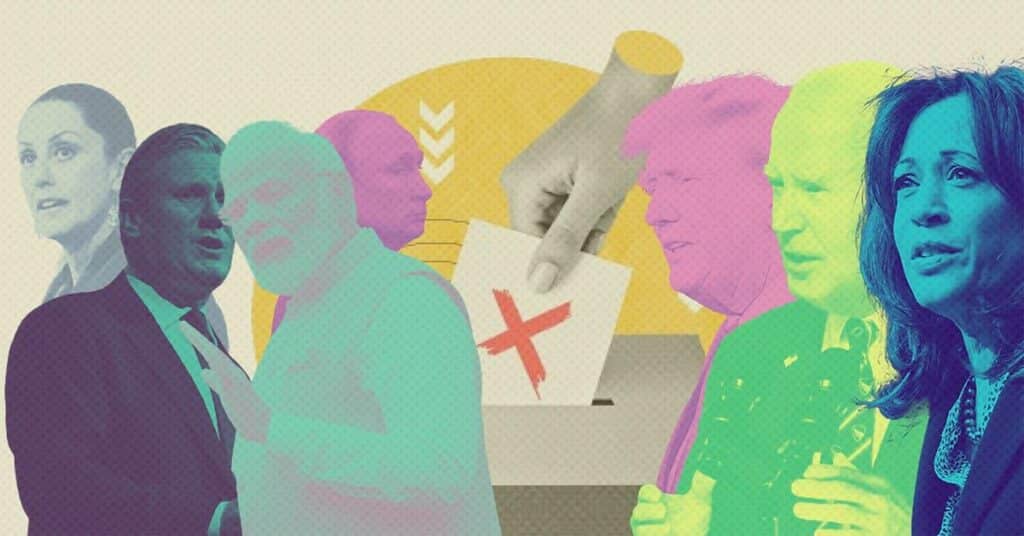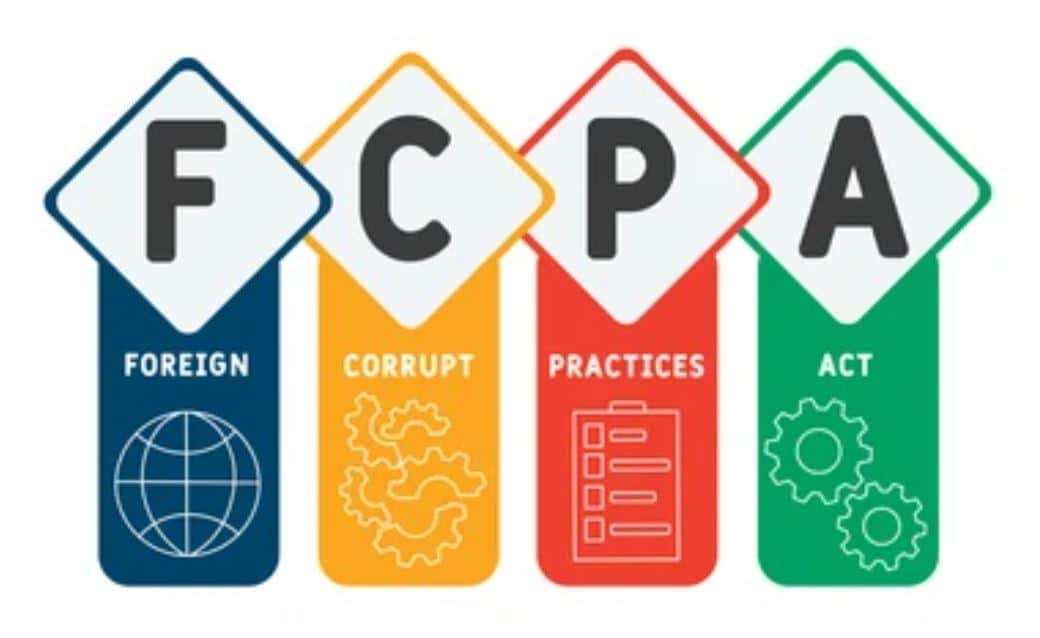
This article was originally published on Corporate Compliance Insights
and is reprinted here with permission. Copyright 2024 CCI.
https://www.corporatecomplianceinsights.com/managing-risk-polls-2024/
The ballot box can have widespread impact on corporate compliance, risk and governance
The American presidential election has taken shocking twists and turns: One candidate was shot and the other — the sitting president — dropped out of the race. But the U.S. isn’t alone in the potential for political volatility to affect the risk posture of organizations across the globe. In fact, high-stakes elections are planned or have already taken place in more than 50 countries. Christopher Mason and Ian Oxnevad of Infortal look at the multiple types of risks — including shifts in regulations, enforcement priorities and foreign policy — these national elections could pose.

More than half of the world’s population will head to the voting booth in 2024, not including local or regional elections that can also impact compliance programs.
Importantly, major U.S. trading partners have elections this year. Elections in Mexico, the UK, India and the European Parliament show how the outcome of the ballot box will affect everything from trade and taxation to foreign policy and sanctions enforcement. This, in turn, impacts business costs and opportunities in the U.S. and abroad.
As we’ve seen recently with the election in Argentina, long-established economic and political norms can get upended when what would normally be considered an outsider candidate is elected. In Argentina’s case, Janier Milei rode the wave of a political movement combining libertarian economics and a reduction of statism to victory.
The Argentine political cocktail was empowered by chronic inflation disaffecting younger voters and a growing sentiment among diverse voters that a distant and disinterested political elite ran the country. While observers were shocked by the results, the new president quickly stabilized the currency and is actively working on building relations with U.S. companies. As Argentina opens up to more Western investment, companies keeping a pulse on the political situation will be better equipped to capitalize.
It is also crucial to recognize that emerging political movements are not just passing demonstrations or protests restricted to a specific location. In our increasingly interconnected world, these movements can now travel more readily across international borders, significantly impacting other national elections.
By actively staying informed and understanding these dynamics, your firm will be better prepared to navigate potential business and regulatory environment changes.
With electoral realignment unfolding and elections cascading globally, polling data has flooded the headlines in 2024. While important, polls can be very misleading and are often incorrect. The key is not relying on a single polling source and not making strategic decisions based purely on trending polls.
It is better to use polling data to inform contingency planning and gauge consumer sentiment. Polls do not guarantee electoral outcomes, and electoral outcomes do not neatly translate into policy. However, polls do offer a warning indicator of near-future trends that can affect your business outlook.
The sway elections hold on the legislative and regulatory process cannot be overstated. When power changes hands or is reaffirmed, the implications for legislative priorities and subsequent regulations are profound. These changes could introduce new rules that businesses must follow or amend existing ones, potentially disrupting operational norms.
Compliance professionals must monitor these shifts to ensure that their organizations stay ahead of the curve in adjusting to new requirements; failure to do so can lead to severe legal and financial repercussions.
Changes to the composition of a country’s executive government can also signal a lighter or heavier governmental hand. This can include additional taxation, labor law changes or even subsidies for critical industries.
Following elections, legislative and regulatory risk is one of the first layers of policy shifts that can usher in a new era of compliance requirements.
New executive leadership can launch new regulatory mandates. In the U.S., we’ve witnessed the heavy use of executive orders to directly impact policy through regulatory reforms. These orders can directly impact your business.
For example, the Biden Administration’s October 2023 order covering artificial intelligence (AI) mandates that AI developers publicly share certain information with the federal government. An additional element of this order includes “establishing standards and best practices for detecting AI-generated content and authenticating official content.” Even for the AI industry, where laws cannot possibly keep up with development, tech companies are now faced with new compliance obligations relevant to an otherwise wide-open area of the economy.
In many cases, compliance officers and in-house counsel are tasked with anticipating and understanding regulatory changes. Monitoring election risk can give your team a head start in implementing the right changes.

While regulation and policy are anchored in existing legislation, incoming heads of state can exercise discretion in how they plan to enforce the laws in the books by exercising prosecutorial discretion. Anyone who has examined immigration policy in the U.S. knows that the level of enforcement of the same set of guidelines is drastically different depending on who is in charge.
This is a more complex challenge for compliance departments because a plain reading of the regulations may not clarify how regulators plan to approach enforcement. The executive plays a vital role in shaping and implementing policies that directly affect compliance mechanisms due to the executive’s oversight of bureaucracy.
Changes in foreign policy are an often overlooked layer of election-driven risk for compliance teams. Electoral change can alter the executive, who can quickly change foreign policy in ways that can impact trade and the cost of doing business.
For example, the U.S. is embroiled in a trade war with China that affects several industries through tighter trade restrictions and increased taxation. Similarly, in South America, the cost of imports can fluctuate depending on how new administrations lean.
For compliance officers and executives, understanding these changes is crucial for companies to navigate risks effectively and align their operations with upcoming legal and regulatory frameworks. Consider elections your leading indicator of future compliance risks.
For compliance professionals, elections may seem like an arcane and distant form of political risk; however, electoral outcomes may be the first indicator of what is coming your way. Getting ahead of the curve will place your firm on a stronger footing.
Executives and compliance officers can formulate an election risk management strategy to prepare for compliance challenges and reduce costs through intelligence-based contingency planning. Here’s how to begin:
First, you need to assess your exposure to election-based risk. This requires reviewing regulatory exposure based on industry, physical location and access to supplies and labor.
For American companies, this assessment should begin in the U.S., but they should also understand which global elections can impact operations worldwide. This includes reviewing supply chains for dependencies.
After understanding your geographic-based exposure, it is a best practice to have your team review your existing policies and procedures to pinpoint where upcoming election-based changes in regulation may have the most significant impact. This will allow your team to explore alternatives more efficiently as needed.
After establishing your company’s exposure to the upcoming cycle of elections, you need to keep a pulse on how both sides of the contest plan to govern. This requires monitoring the media and pronouncements made by key government officials.
Importantly, you must be careful about allowing polls to define your planning. Even heavy favorites finish second. As recent election polls in the U.S. have demonstrated, predicting election outcomes is not an exact science.

It will be essential to continue to monitor the development and implementation of any new or continuing administration’s executive agenda soon after the election. This requires watching for official statements and media coverage of the administration’s goals. Leading predictive indicators are typically available at the outset that can illuminate future policy positions.



